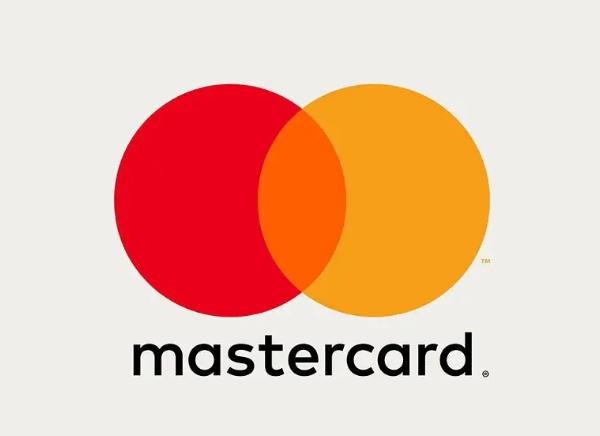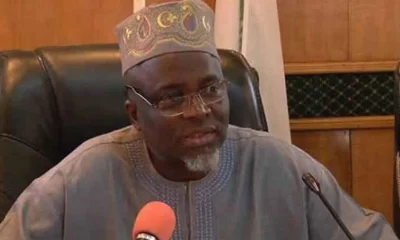Business
Mastercard Gradually Withdraws First-use PVC Plastic Cards, Partners React
Published
1 year agoon
By
Editor
Global payment company, Mastercard has accelerated efforts to remove first–use, PVC plastics from payment cards on its network by 2028.
The move, according to the company reinforces its sustainability commitments and scales the accessibility of more sustainable card offerings for consumers seeking a way to reduce the environmental impact of their wallet.
The company has concluded that from January 1, 2028, all newly–produced plastic payment cards will be made from more sustainable materials – including recycled or bio-sourced plastics such as rPVC, rPET, or PLA and approved through a certification program, in a first move for a payment network. The company will support its global issuing partners through the transition away from virgin PVC.
Global partner banks have reacted to the new development with some saying it will usher a new era that will support a more sustainable future.
READ ALSO: Why Debt Burden Will Worsen For Nigeria, Other Low Income Countries — IMF
Group Head of Retail Banking and Strategy, Wealth and Personal Banking at HSBC, Taylan Turan, said: “The announcement from Mastercard is a huge step for financial services. New sustainable materials, such as rPVC, offer our sector a clear way to accelerate its efforts to build a more sustainable future.
“As part of our net zero strategy at HSBC, we’ve already introduced recycled plastic payment cards across 28 of our global markets and embedded the requirement to use sustainable materials for all debit, credit and commercial cards in our product governance; removing 85 tonnes of plastic that would have ended up in landfill.”
This level of impact couldn’t be achieved without strong partnership; “I am so proud for us to be a part of a movement which is gathering momentum across the world.”
Also, Head of Payment Solutions, Senior Vice President at Bank of the West, Michael Battagliese, said: “We believe that conducting business sustainably is simply the right thing to do”
READ ALSO: Oil Market: Nigeria, Russia Account For 440,000 Bpd Drop In Output — Report
Chief Banking Officer at Starling Bank, Helen Bierton, said: “This initiative is a welcome next step in the journey to a sustainable future. As one of the first banks to remove first-use PVC from our debit cards, we know how important this is to our customers.”
Mastercard launched its Sustainable Card Program in 2018 and since then, over 330 issuers across 80 countries have signed up, working in partnership with major card manufacturers to transition more than 168 million cards across its network to recycled and bio-based materials. Today’s announcement further accelerates these efforts, while also complimenting the company’s work to deliver innovative, digital-first card programs that fully eliminate the need for a physical card offering.
The rule change will see all newly made cards certified by Mastercard to assess their composition and sustainability claims; this certification will then be validated by an independent third-party auditor. Once a card has been validated it can be imprinted with a Card Eco Certification mark.
President of Cyber & Intelligence at Mastercard, Ajay Bhalla, said: “At Mastercard we are leading and shaping our industry’s collective pursuit of a more sustainable, more environmentally conscious future. As our customers respond to increased consumer desire to make more eco-friendly choices, we are making a firm commitment to reducing our environmental footprint – for the benefit of people, planet and inclusive growth.”
READ ALSO: Insecurity: UK Pledges Improved Intelligence Sharing With Nigeria
Mastercard established its sustainability efforts more than a decade ago with a focus on financial inclusion, data responsibility and the environment. Through its network it collaborates with partners to bring new environmental innovations and initiatives to market, such as our Priceless Planet Coalition, Carbon Calculator as well as the Sustainable Card.
“Mastercard is committed to advancing climate action and reducing waste by driving our business toward net zero emissions and leveraging our network and scale to accelerate the transition to a low-carbon, regenerative economy,” said Ellen Jackowski, Chief Sustainability Officer for Mastercard.
VANGUARD
You may like
Business
BREAKIN: NDIC Increases Maximum Deposit Insurance Coverage
Published
3 hours agoon
May 2, 2024By
Editor
The Nigeria Deposit Insurance Corporation (NDIC) on Thursday increased the maximum deposit insurance coverage levels for Deposit Money Banks from N500,000 to N5 million.
The Managing Director of NDIC, Bello Hassan, announced this in Abuja at a press conference, stating that it takes effect immediately.
He said, “For Deposit Money Banks, the increase of the maximum deposit insurance coverage from N500,000 to N5,000,000, would provide full coverage of 98.98% of the total depositors compared with the current cover of 89.20%.
READ ALSO: [BREAKING] Coastal Highway: FG To Pay N2.75bn Compensation Today
“In terms of the value of deposit covered, the revised coverage would increase the value of deposits covered by deposit insurance to 25.37% compared with the current cover of 6.31% of total value of deposits.
“The increase of the maximum deposit insurance coverage from N200,000 to N2,000,000, would provide full coverage of 99.27% of the total depositors compared with the current level of 98.76% and would increase the value of deposits covered by deposit insurance to 34.43% compared with 14.38% of total value of deposit, currently covered.
“The increase of the maximum deposit insurance coverage from N500,000 to N2,000,000 would provide full coverage of 99.34% of the total depositors compared with the current 97.98% and would increase the value of deposits covered by deposit insurance to 21.04% compared with 10.77% of total value of deposit, currently covered.”
READ ALSO: Mother Of Four Hacked To Death By Neighbour, Son In Edo
Hassan also stated that raising the maximum deposit insurance coverage for primary mortgage banks from N500,000 to N2,000,000 would provide full coverage for 99.99% of total depositors and increase the value of deposits covered by deposit insurance to 43.10% of the total deposit value, up from the current 40.60% cover.
The Corporation has also raised the maximum pass-through deposit insurance coverage for subscribers of Mobile Money Operators from N500,000 to N5,000,000 per subscriber.

Chairman of Dangote Industries Limited, Aliko Dangote has said that the devaluation of Naira created the biggest mess for the company in 2023.
Speaking at the annual general meeting of Dangote Sugar Refinery, Dangote said this affected lots of companies in the country.
He said: “We are doing whatever it takes to make sure that at the end of the day, we will be paying dividends because if you look at our dividends last year, it was almost 50 percent more so we will try and get out of the mess.
READ ALSO: Ex-policeman Who filmed Wife Having Wex With Her Superior Found Guilty Of Stalking
“The biggest mess created was actually the devaluation of the naira from N460 to N1,400. You can see almost 97 percent of the companies, especially in food and beverages businesses, none of them will pay dividends this year for sure but, we will try and get out of it as soon as possible.
“We want to see that at the end of the day, no matter how small, we will be able to pay some dividends, especially if there is a rebound of the naira.”
Business
Customers Panic As CBN Bans Opay, Palmpay, Others’ New Accounts
Published
2 days agoon
April 30, 2024By
Editor
Some bank customers have expressed panic as the Central Bank of Nigeria bans mobile money operators including fintech firms from onboarding new customers.
However, the Bank Customers Association of Nigeria backed the CBN directive.
The new directive will affect fintech companies such as OPay, Palmpay, Kuda Bank, and Moniepoint, from opening new accounts until further notice.
Reliable sources from three major fintechs who requested not to be mentioned as they were not permitted to speak, confirmed the development to The PUNCH on Monday.
The CBN’s move was linked to an ongoing audit of the Know-Your-Customer process of the fintechs, which have been under scrutiny in recent months over concerns around money laundering and terrorism financing.
It was gathered that the CBN had summoned some of the heads of fintechs to Abuja to discuss issues around KYC last week.
The CBN has not yet publicly commented on the directive to the fintech firms. The PUNCH’s attempts to reach the apex bank for comment were unsuccessful.
Several calls made to the telephone line of the CBN spokesperson, Hakama Ali Sidi, were not responded to as of the time of filing this report.
READ ALSO: CBN Sells Fresh Dollars To BDCs At N1,021/$
Also, the directive coincided with the court order that the Economic and Financial Crimes Commission (EFCC) obtained to freeze at least 1,146 bank accounts owned by various individuals and companies allegedly involved in illegal foreign exchange transactions.
The 85-page court order (document), which listed the bank account details suspected to be involved in illicit activities, was obtained by The PUNCH on Monday.
Justice Emeka Nwite, in a ruling on the ex-parte motion, moved by counsel for the anti-graft agency, Ekele Iheanacho, also granted the commission’s application to conclude the investigation within 90 days.
Part of the court document read, “That the applicant’s (EFCC) application is hereby granted as prayed.
“That an order of this honorable court is hereby made freezing the bank accounts stated in the schedule below, which accounts are owned by various individuals who are currently being investigated in a case involving the offenses of unauthorised dealing in foreign exchange, money laundering, and terrorism financing, to the extent that the investigation will be for a period of 90 (ninety) days.”
The EFCC, in the motion marked FHC/ABJ/CS/543/2024 dated and filed April 24 by Iheanacho, was heard by the judge the same day in the interest of national interest.
“The motion was brought pursuant to Section 44(2) and (K) of the 1999 Constitution; Section 34 of the EFCC Establishment Act 2004; Section 7(8) of the Money Laundering Prevention and Prohibition Act, 2022; and under the inherent jurisdiction of the court.”
The President of the Bank Customers Association of Nigeria, Uju Ogubunka, backed the CBN’s move to suspend new account opening on the affected platforms.
He told The PUNCH that the strict regulations that govern deposit money banks must apply to fintechs, and microfinance banks in order to ensure the integrity of the financial institutions.
READ ALSO: CBN Gives New Directive On Lending In Real Estate
He said, “Anything that can disrupt the system should not be permitted. If the platforms are being used for things that are against the regulations, I think the CBN decision is OK. I don’t see anything wrong with that. It behoves on the companies now to get their KYC right.
“Let them do what they are supposed to do. KYC applies to banks and other financial institutions that deposit money. It should also apply to them so that the regulators can understand what is going on and hold them accountable.”
On the other hand, Emmanuel Odunsi on X (formerly Twitter) welcomed the move, citing the need for better KYC processes to prevent scams and fraudulent activities.
“Their KYC isn’t that great. Lots of scammers are using their apps to defraud people.
“Most of the accounts were created by mining phone numbers, with subscribers’ permission. Almost every phone number has been linked to an account,” Odunsi said.
In October 2023, Fidelity Bank blocked transfers to OPay, Palmpay, Kuda, and Moniepoint due to concerns around KYC processes.
In response, the CBN introduced new KYC rules for all financial institutions in November 2023, which appeared to target fintech startups.
READ ALSO:JUST IN: CBN Gov Sacks Eight Directors, 32 Others
A source from Moniepoint said the company had complied with the directive, effectively halting new account creation on their platform. However, the source denied having anything to do with KYC.
“It’s just a regulation from the CBN, and we’ve complied. The real question is, why are fintechs always targeted,” he source argued.
“It has nothing to do with KYC; I am aware that the CBN communicated, but this particular issue dwells on accounts related to cryptocurrency transactions,” the source revealed.
The CBN has an ambitious target to increase overall financial inclusion to 95 per cent of the adult population by 2024.
With the new order, the target may be affected, as the company processes about 100 new accounts every day.
The source argued that fintechs had played significant roles in deepening financial inclusion in the country.
The company had deployed robust and reliable digital payment infrastructure that has facilitated an average monthly transaction value of $12bn for about 1.6 million businesses, it said last year.
READ ALSO: FULL LIST: 31 States Owe CBN N340bn Bailout Funds
A senior employee of PalmPay confirmed to The PUNCH that there was a CBN directive for fintechs to reassess their KYC processes.
This is causing a temporary pause in onboarding new customers, the source stated.
She clarified that the KYC review was a collaborative effort with the CBN, and fintechs were awaiting further instructions without a specified timeline for resolution.
Another source at OPay, who also declined to be named, said they were following the CBN’s directive and could not comment further.
“We don’t really have anything to say. It’s just a directive that we are following. The CBN has issued their directive.“
Fintech companies have faced increased regulatory scrutiny over their account opening processes.
Customers worry
However, some customers have also used social media, both on X (formerly Twitter) and Facebook, to express their worries and opinions on the matter.
Some customers are anxious about the safety of their funds, with Warisenibo Jumbo suggesting it’s best to transfer their money out of Opay.
Oye Niran wondered if their Moniepoint account was safe, stating, “Hope my Moniepoint account is safe.”
Larry Leanz questioned the rationale for keeping money on these platforms.
“But is it still safe to keep money there?, Leanz questioned.

JUST IN: Crisis In UniAbuja As ASUU Faction Declares Indefinite Strike

[JUST IN] PICTURES: Hoodlums Clash In Lagos, Set Market On Fire

How Two Kenyan School Dropouts Made Prosthetic Arms For People With Disabilities
Trending

 News5 days ago
News5 days ago‘I Can’t Breathe’ – Black Man Cries As US Police Handcuffed, Pinned Him Down Till He Dies [VIDEO]

 Politics1 day ago
Politics1 day agoWhy Candidate Who Needs Interpreter Can’t Be Edo Gov – Shaibu

 Metro4 days ago
Metro4 days agoEdo Police Arrest Suspected Cultists Who Allegedly Killed Rival In His Daughter’s Presence

 News4 days ago
News4 days agoJUST IN: Popular Gospel Singer Is Dead

 News5 days ago
News5 days agoOba Of Benin Suspends Six Officials For Posing As Palace Emissaries To Ooni Of Ife

 News5 days ago
News5 days agoUNIBEN Ex-deputy VC Is Dead

 Business2 days ago
Business2 days agoCustomers Panic As CBN Bans Opay, Palmpay, Others’ New Accounts

 News3 days ago
News3 days agoOoni: Suspended Benin Palace Functionaries Banished

 Metro4 days ago
Metro4 days agoGunmen Assassinate Governor Aiyedatiwa’s Campaign Coordinator In Ondo

 News3 days ago
News3 days ago2024 UTME: JAMB Withholds Results Of 64,624 Candidates
























